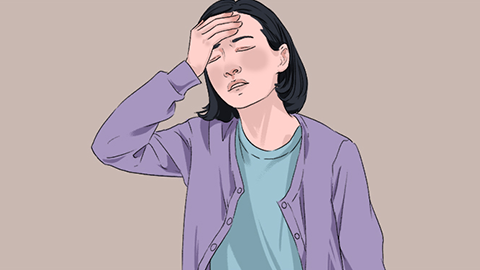Elevated CRP with fever indicates what kind of infection?
Generally, elevated CRP levels accompanied by fever may be caused by post-exercise stress response, tissue injury stress after surgery, bacterial tonsillitis, bacterial pneumonia, pyelonephritis, and other conditions. It is recommended to seek timely medical attention to identify the underlying cause and receive appropriate treatment under a doctor's guidance. Detailed explanations are as follows:

1. Post-exercise stress response: Intense physical activity places the body in a state of stress, stimulating the liver to synthesize CRP. Additionally, excessive heat production in the body may lead to transient low-grade fever. After stopping exercise, bed rest, drinking plenty of warm water to maintain hydration, and avoiding strenuous activity again can help restore body temperature and CRP levels gradually within 1-2 days.
2. Tissue injury stress after surgery: Surgical trauma during the tissue repair process causes an inflammatory response in the body, leading to elevated CRP levels. Some patients may experience mild fever. Postoperatively, maintaining wound cleanliness and dryness, changing dressings as directed by a physician, and preventing infection can help reduce inflammation, allowing body temperature and CRP levels to gradually decline as the wound heals.
3. Bacterial tonsillitis: Bacterial infections such as streptococcus infecting the tonsils trigger an inflammatory response, causing fever and elevated CRP levels, accompanied by sore throat, swollen tonsils, and pus formation. Patients may follow medical advice to take medications such as amoxicillin capsules, cefuroxime axetil tablets, or azithromycin dry suspension. Gargling with warm salt water can also help relieve sore throat symptoms.
4. Bacterial pneumonia: Infection of the lungs by pathogens such as Streptococcus pneumoniae or Staphylococcus aureus triggers inflammation, resulting in fever, cough, purulent sputum, and significantly elevated CRP levels. Patients should follow medical advice to use medications such as ceftriaxone sodium injection, levofloxacin injection, or amoxicillin-clavulanate potassium tablets. Oxygen therapy may be necessary in some cases to improve respiratory function.
5. Pyelonephritis: Bacterial infection of the renal pelvis and kidney tissue, commonly caused by Escherichia coli, leads to urinary tract inflammation, presenting as fever, back pain, frequent and urgent urination, along with elevated CRP levels. Patients may follow medical instructions to take medications such as cefixime capsules, levofloxacin hydrochloride tablets, or piperacillin sodium-tazobactam sodium for injection. Increasing fluid intake to promote urine excretion can also help control the infection.
In daily life, adequate rest should be ensured to avoid fatigue. A light and easily digestible diet rich in fresh fruits and vegetables to supplement vitamins is recommended. Physical cooling methods such as warm water sponge baths can be used to alleviate discomfort during fever, while closely monitoring changes in body temperature and overall health condition.




